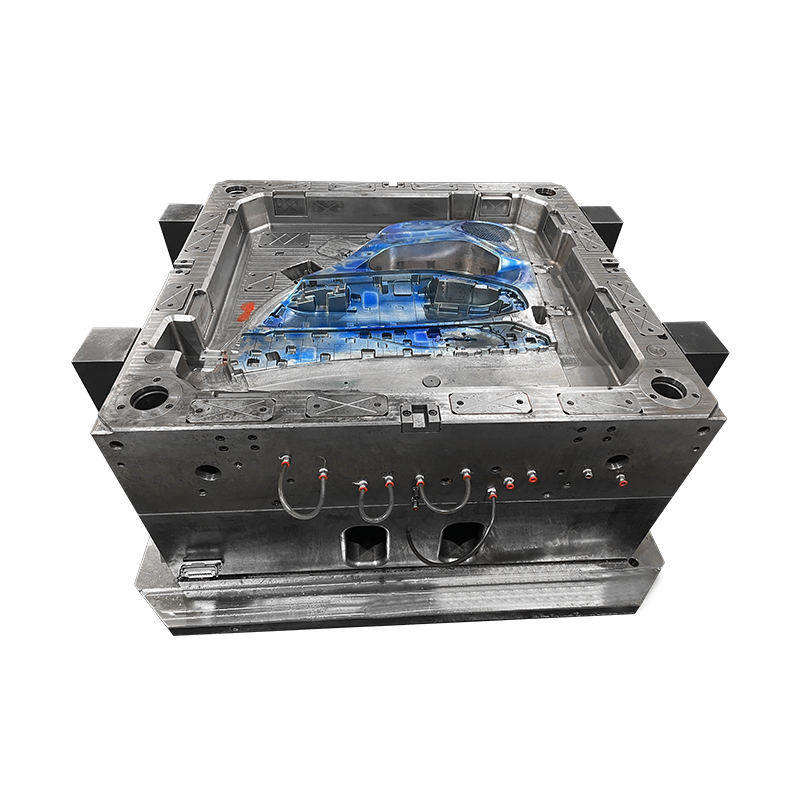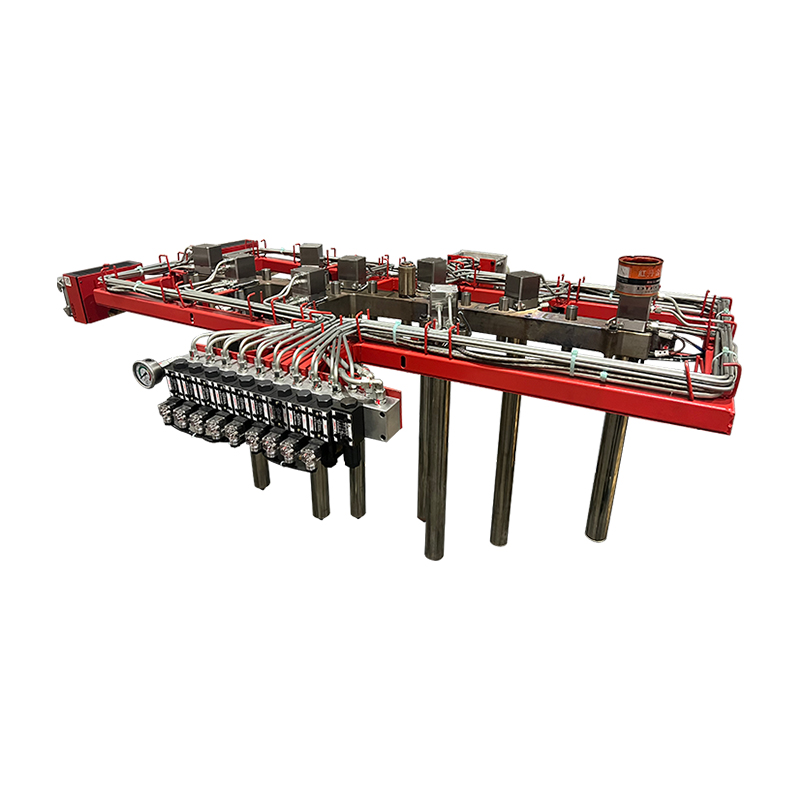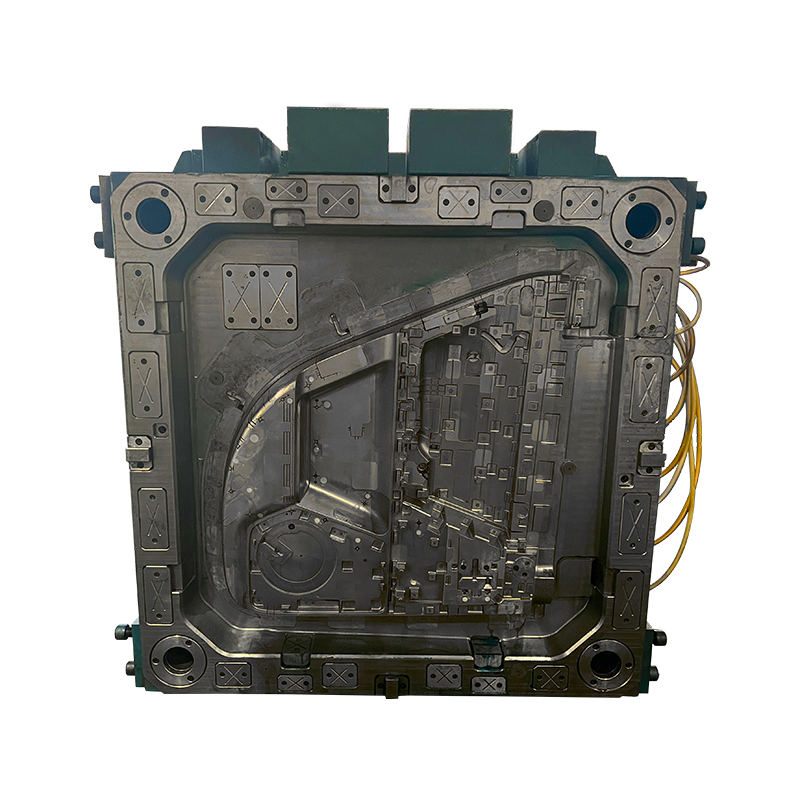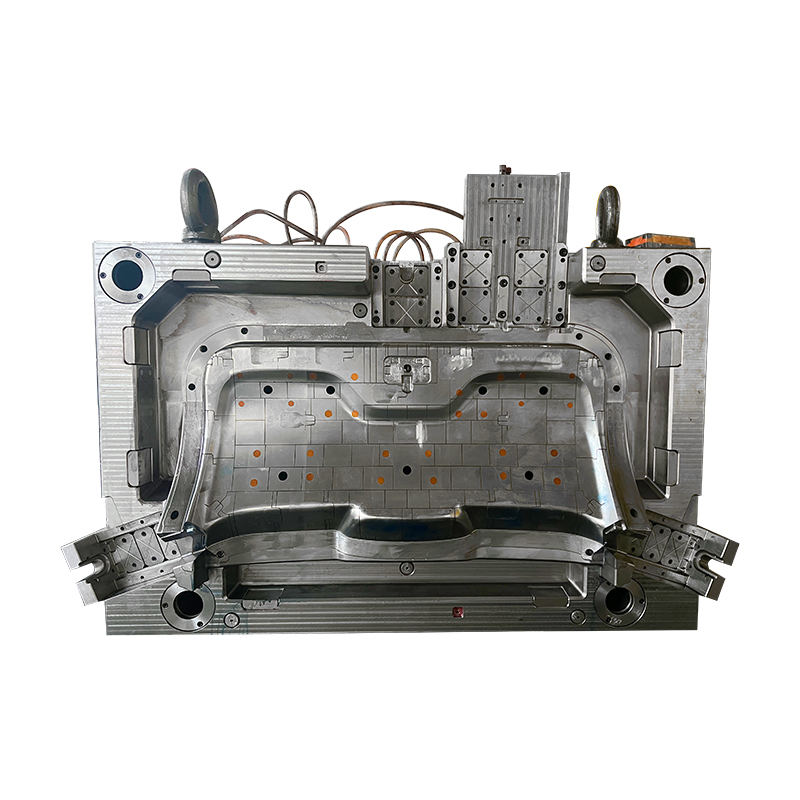In the realm of urban infrastructure, the durability and reliability of manhole covers and frames are crucial to ensuring the smooth operation of municipal services. Among the various components that constitute these structures, the D400 manhole frame mold plays a pivotal role in shaping the frames that support and secure manhole covers in place.
Materials for D400 Manhole Frame Plastic Injection Mould
The materials chosen forD400 Manhole Frame Plastic Injection Mould must possess exceptional characteristics to withstand the rigors of urban environments. Typically, these molds are crafted from high-strength materials such as ductile iron or steel. Ductile iron, known for its robustness and malleability, is a favored choice due to its ability to endure heavy loads and resist corrosion effectively. Steel, on the other hand, offers strength and durability, ensuring longevity under various environmental conditions.
The manufacturing process of D400 Manhole Frame Plastic Injection Mould involves precision engineering to achieve exact specifications required for municipal applications. Advanced techniques such as CNC machining and precise casting are employed to ensure dimensional accuracy and uniformity across production batches. This meticulous approach not only enhances the structural integrity of the molds but also contributes to the overall quality and reliability of the manhole frames produced.
Significance of High-Quality D400 Manhole Frame Molds
The significance of using high-quality D400 manhole frame molds extends beyond mere structural support. These molds play a critical role in shaping manhole frames that meet stringent regulatory standards for load-bearing capacities and safety. Municipalities rely on such frames to endure heavy traffic loads and maintain stability over extended periods, thereby maintenance costs and ensuring operational efficiency of sewerage and drainage systems.
Moreover, the durability of High-Quality D400 manhole frame molds directly impacts the service life of manhole covers and frames. By utilizing materials capable of withstanding substantial loads and environmental stresses, manufacturers contribute to sustainable urban infrastructure development. The longevity and reliability of these components reduce the frequency of replacements, thereby promoting cost-effectiveness and disruptions in municipal services.
In conclusion, the materials used for crafting high-quality D400 manhole frame molds underscore the importance of precision engineering and robust construction in urban infrastructure. Ductile iron and steel emerge as primary choices due to their exceptional strength, durability, and corrosion resistance properties. By adhering to stringent manufacturing standards and leveraging advanced technologies, manufacturers ensure that High-Quality D400 manhole frame molds meet the demanding requirements of modern urban environments. As municipalities continue to prioritize infrastructure resilience and sustainability, the role of these molds in enhancing the performance and longevity of manhole covers and frames remains indispensable.
D400 Manhole Cover Plastic Injection Mould
The production of D400 manhole covers through plastic injection molding represents a pivotal advancement in engineering solutions for urban infrastructure. This article explores the process and benefits of using plastic injection molds to manufacture D400 manhole covers, emphasizing their efficiency and environmental suitability.
Process of Plastic Injection Molding for D400 Manhole Covers
Plastic injection molding revolutionizes the manufacturing of D400 manhole covers by offering a streamlined production process that ensures consistency and precision. The process begins with the selection of high-quality thermoplastic materials, such as polypropylene (PP) or polyethylene (PE), renowned for their durability and resistance to corrosion and environmental degradation.
During injection molding, the selected thermoplastic material is heated to a molten state and injected into a meticulously crafted mold cavity under high pressure. This technique allows for the creation of intricate geometries and precise dimensions, essential for meeting D400 standards for load-bearing capacities and structural integrity. Advanced molding technologies, including computer-aided design (CAD) and computer-aided manufacturing (CAM), further enhance the accuracy and efficiency of the production process.
Benefits of Plastic Injection Molding for D400 Manhole Covers
The adoption of plastic injection molding for D400 manhole covers offers several notable advantages over traditional materials such as cast iron. Thermoplastics exhibit exceptional corrosion resistance, making them ideal for prolonged exposure to harsh environmental conditions without compromising performance. Secondly, plastic injection molding enables the integration of features such as anti-slip textures and customized logos directly into the cover design, enhancing safety and aesthetic appeal.
Furthermore, plastic D400 manhole covers are significantly lighter than their metal counterparts, facilitating easier handling during installation and maintenance activities. This weight reduction translates into lower transportation costs and reduced labor requirements, contributing to overall cost-effectiveness for municipalities and contractors alike.
Environmental Considerations and Sustainability
From an environmental perspective, plastic injection molding aligns with sustainable practices by material waste and energy consumption compared to traditional manufacturing methods. The ability to recycle thermoplastic materials further enhances the eco-friendliness of plastic D400 manhole covers, supporting circular economy principles and reducing the carbon footprint associated with urban infrastructure maintenance.












